Iraqi elections: voters in Nassiriya, heartland of the recent revolt, see little hope of change
Iraq’s election is taking place seven months earlier than planned, in a bid to appease protesters, but voters in Nassiriya say the system is too broken to achieve any change, writes Bel Trew

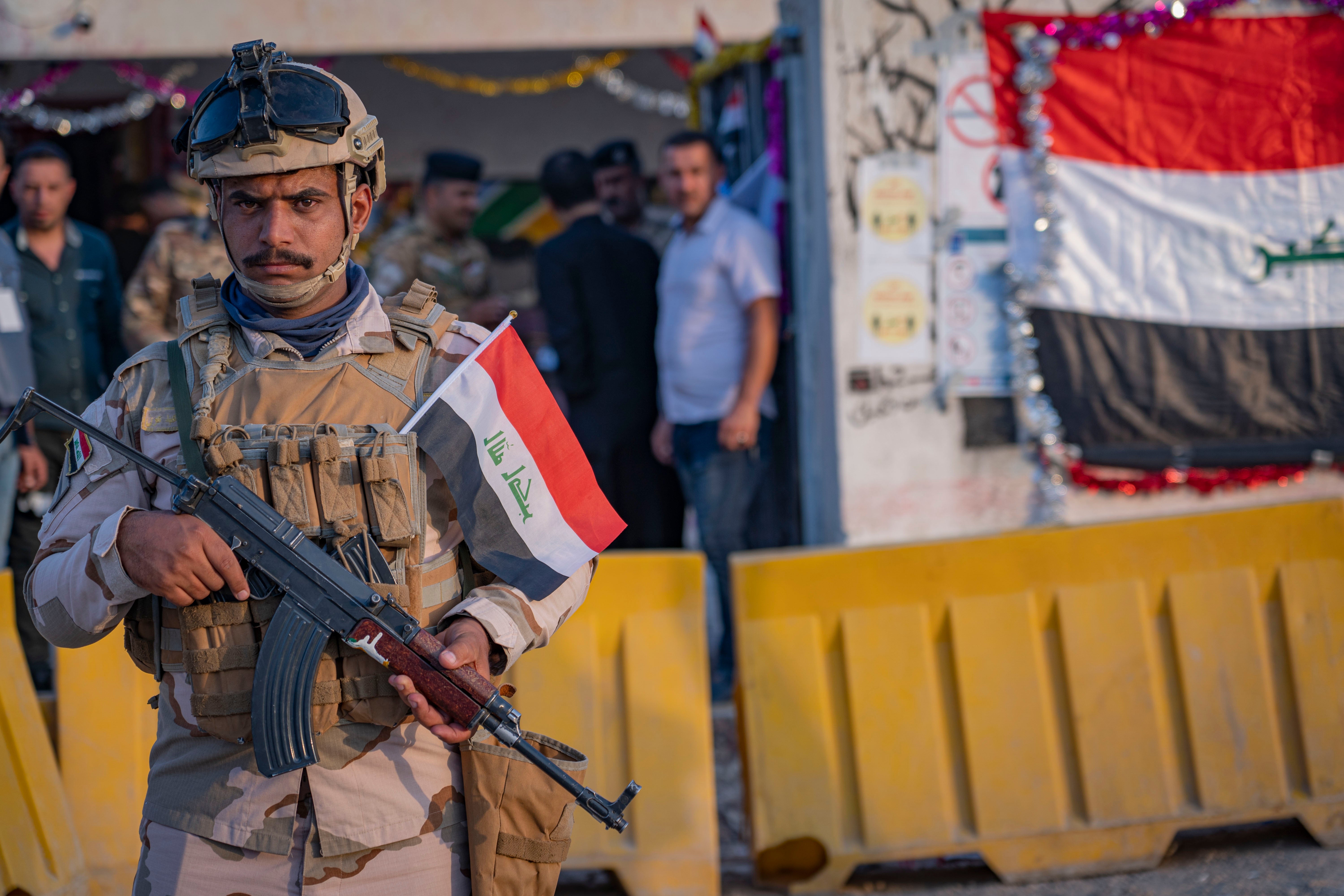
The Iraqi protesters point to the smiling photo of their friend Ahmad, 26, who was stabbed to death last year during anti-government rallies, when asked why they are boycotting Sunday’s early election.
Sitting on the floor of one of their homes in the simmering city of Nassiriya, the young men also cite the disappearance of their other friend Sajjad al-Iraqi, a prominent local activist. He was kidnapped at gunpoint by unknown armed groups last September and is still missing.
The election, taking place seven months early, was a key demand of Iraq’s Tishreen uprising which erupted in October 2019 when hundreds of thousands of Iraqis took to the streets demanding jobs, better infrastructure and the removal of the corrupt ruling elite and their affiliated armed factions.
But in Nassiriya - Iraq’s fourth-largest city that has increasingly become the heartbeat of the revolt - many say the elections will achieve nothing.
“Believe me, if we thought participation in this election would bring about any change, nothing would stop us voting,” says Seif, 24, a pharmacy graduate who first joined the uprising as a volunteer medic.
The protests have been met with deadly force; at least 600 protesters and security personnel have been killed nationwide since they started. Nassiriya has seen some of the worst violence.
“This system is too broken to achieve any change because of the main players in it who still hold all the power. “
Next to him is Hayder, 23, who was initially so excited by the vote he joined a newly formed independent political party called Beit Watani (National Home), which has since dropped out of the race.
He asks: “How can we vote when there are assassinations, disappearances?”
Brimming with tens of thousands of additional members of security forces, Iraq is preparing for the fifth national vote since the fall of Saddam Hussein, due to take place on Sunday.
More than 24 million of Iraq’s estimated 41 million-strong population are eligible to cast their ballots. They will choose from nearly 3,500 candidates who are vying for 329 seats in the parliament, nine of which are reserved for the country’s minorities.
How can we vote when there are assassinations, disappearances?
The vote is months early as Iraqi prime minister Mustafa al-Kadhimi agreed to bow to the demands of protesters.
The country’s former intelligence chief was also lauded for pushing through new elections legislation that has broken Iraq up into 83 electoral districts and prevents parties from running on unified lists. Experts say, although not perfect, the legislation could loosen the main political parties’ stranglehold on the legislature.
“It’s a good opening for Iraqis to be included in the political arena, and is better than the previous elections law which had just 18 districts,” says Mohanad Adnan, an Iraqi political analyst and partner at Roya Development Group.
“They also lowered the minimum age of candidates to 28 years old. You can run as an independent.”
But echoing the protesters in Nassiriya, Adnan does not believe the election will bring any real change: the usual suspects are still expected to maintain their grip on power.
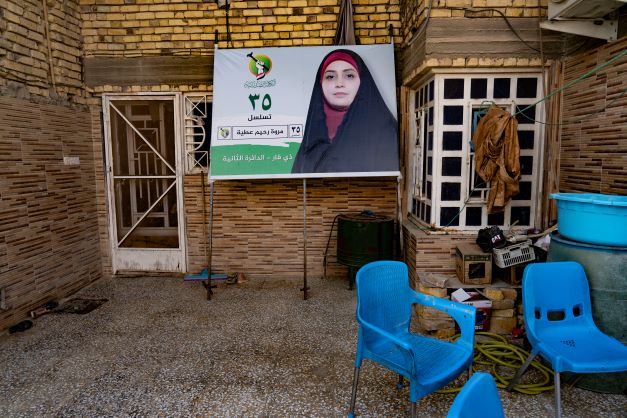
Iraq’s largest political group – the Sadrist Movement, inspired by influential Shia cleric Muqtada al-Sadr – is widely predicted to sweep the most votes as they did in 2018. It is fielding 95 candidates and although it originally planned to boycott the elections has returned to the race with full force. Their candidates in Nassiriya told The Independent they hope to almost double their presence in the parliament.
The Fatah or Conquest alliance, meanwhile, which serves as a political umbrella for mostly pro-Iran state-sanctioned militias, is predicted to lose some of its 47 seats (because of accusations it was involved in crushing the protest movement) but will ultimately still perform well.
“This election is not going to bring a huge change. But at the very least it will bring an opportunity for independents: you can have a seat at the table,” Adnan says.
Our main target in the next period is to establish a real political opposition that has not been seen in Iraq for 100 years
Among those few new parties hoping to break Iraq’s political bottleneck is one formed in Nassiriya, which has a rich history of igniting change in the country. The city, located 340km south of Baghdad, was the heart of the anti-British revolt in the 1920s and in 1991 witnessed an uprising against Saddam Hussein which was brutally crushed. The Tishreen movement has also boiled in its streets.
Nassiriya has one of the highest youth unemployment rates in the country and some of the poorest infrastructure. Sewage pours out into dust-track streets where bridges and highway walls are splashed with revolutionary graffiti.
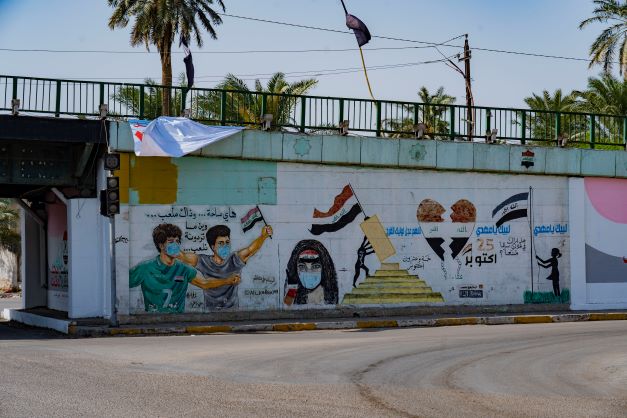
And so it is against this backdrop that “Imtidad” was formed this year, which has positioned itself as one of the few activist-led parties fielding candidates.
Imtidad is headed by pharmacologist Alaa al-Rikabi, a native of the city who boycotted the last vote in 2018 and became a prominent figure in the 2019 protests after he ran field hospitals treating wounded demonstrators.
He admits that Sunday’s election is problematic but believes working from within the parliament is the only way to effectively bring change.
“Our main target in the next period is to establish a real political opposition that has not been seen in Iraq for 100 years,” he tells The Independent during a brief break from campaigning.
“And so our message to our friends [in the protest camp] is that we have complementary roles. You will engage in political opposition outside parliament and we will engage from within, and together we can make a difference.”
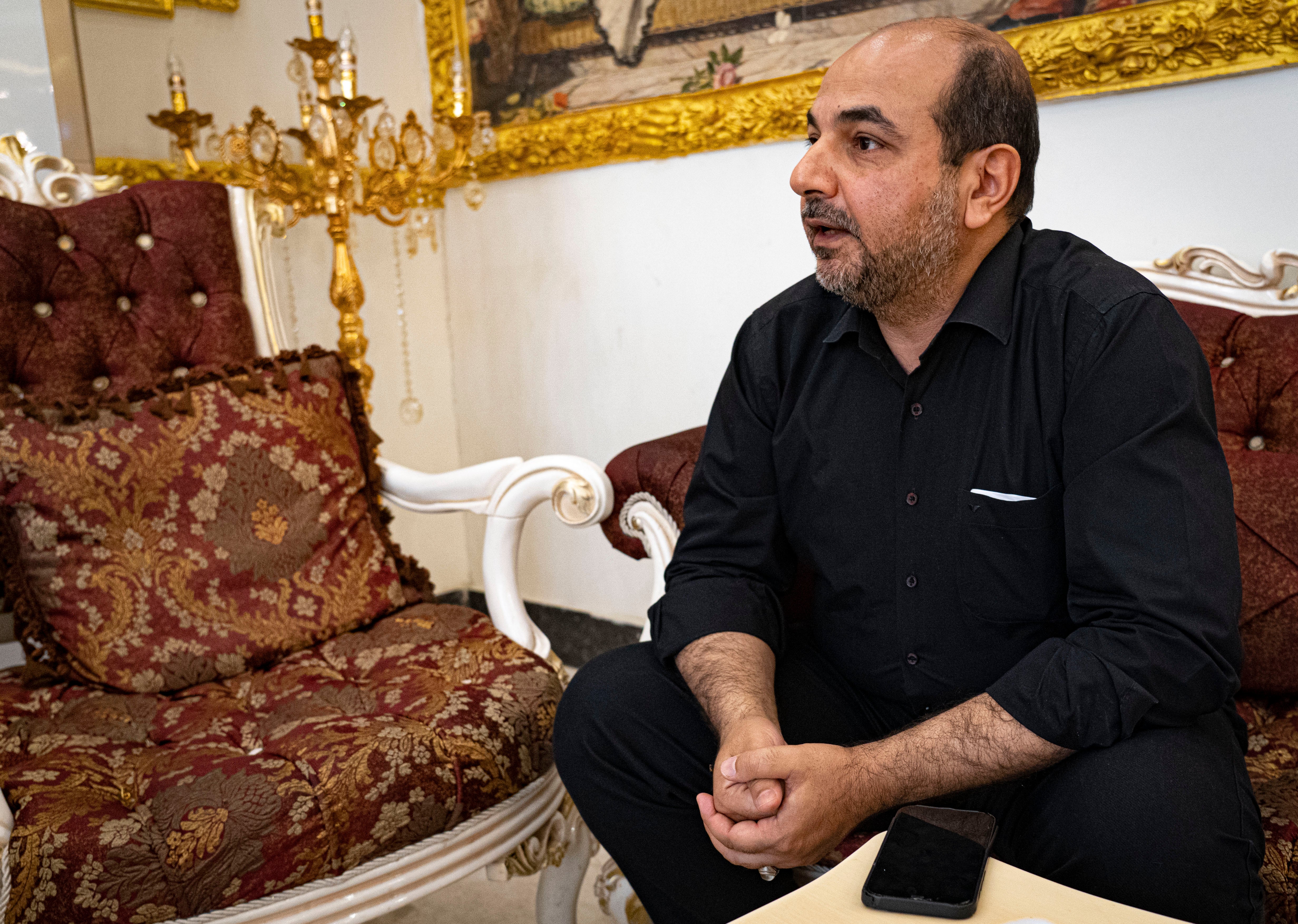
He said if his party gets seats they will push a protest agenda including lobbying for laws tackling corruption, and regulating the oil and gas industry so its profits can be better channelled into fixing Iraq’s crumbling infrastructure.
The part also wants to properly enforce existing legislation that is supposed to bar political parties from having military wings from setting up parties or armed factions from setting up parties.
That might be hard to do as among the new faces in this election is a party that critics argue is the first to be openly affiliated with Kata’ib Hezbollah (KH), the country’s most hardline Shia parliamentary militia.
Our programme is different from others. We are talking about the withdrawal of all foreign forces, we are looking at the sovereignty of Iraqi lands
Hussein Muanis was chief of security for the group until recently, but this year founded “Harakat Huqooq,” or Rights Movement, which is fielding 32 candidates and pushing an electoral program focused on the departure of US troops from Iraq. Experts say because of Mr Muanis’s KH affiliations, this signals the militant group’s formal entry into politics.
KH vehemently denies this as do Huqooq’s candidates who insist Muanis is a civilian who is “steering clear of any sectarian divisions”.
“We are a new political movement; all our candidates are new faces who have not until now participated in the political process,” Muthana Fayhan, a candidate in Baghdad tells The Independent.
“Our programme is different from others. We are talking about the withdrawal of all foreign forces; we are looking at the sovereignty of Iraqi lands. We want to protect the people of Iraq, to give them a better quality of life.”
Back in Nassiriya, heavily guarded polling stations open early for members of the security forces to vote. Protesters there tell The Independent they hope if the boycott movement is strong, turnout might be low enough to discredit the elections (although under Iraqi law there is no minimum required voter attendance).
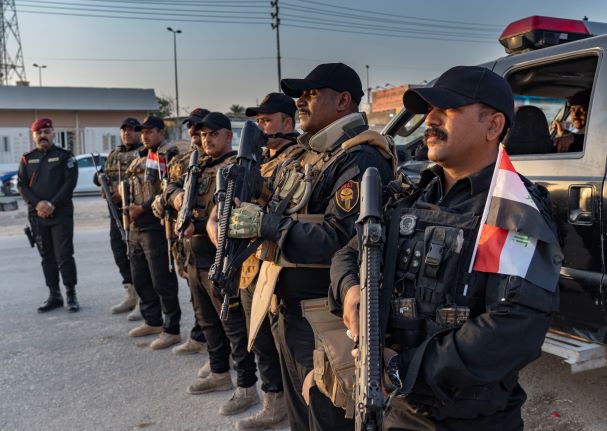
“Most of the leaders since the Iraq invasion in 2003 have come from Nassirya, including the former prime minister, yet no one has done anything for us,” says Haydar, with a note of desperation in his voice.
“In these elections, the main components of a democratic process are missing. Until they are found, our vision is to make change from the street and to steer clear of the ballot box.”
Join our commenting forum
Join thought-provoking conversations, follow other Independent readers and see their replies
Comments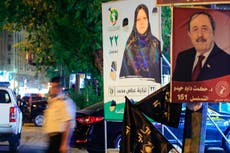


Bookmark popover
Removed from bookmarks